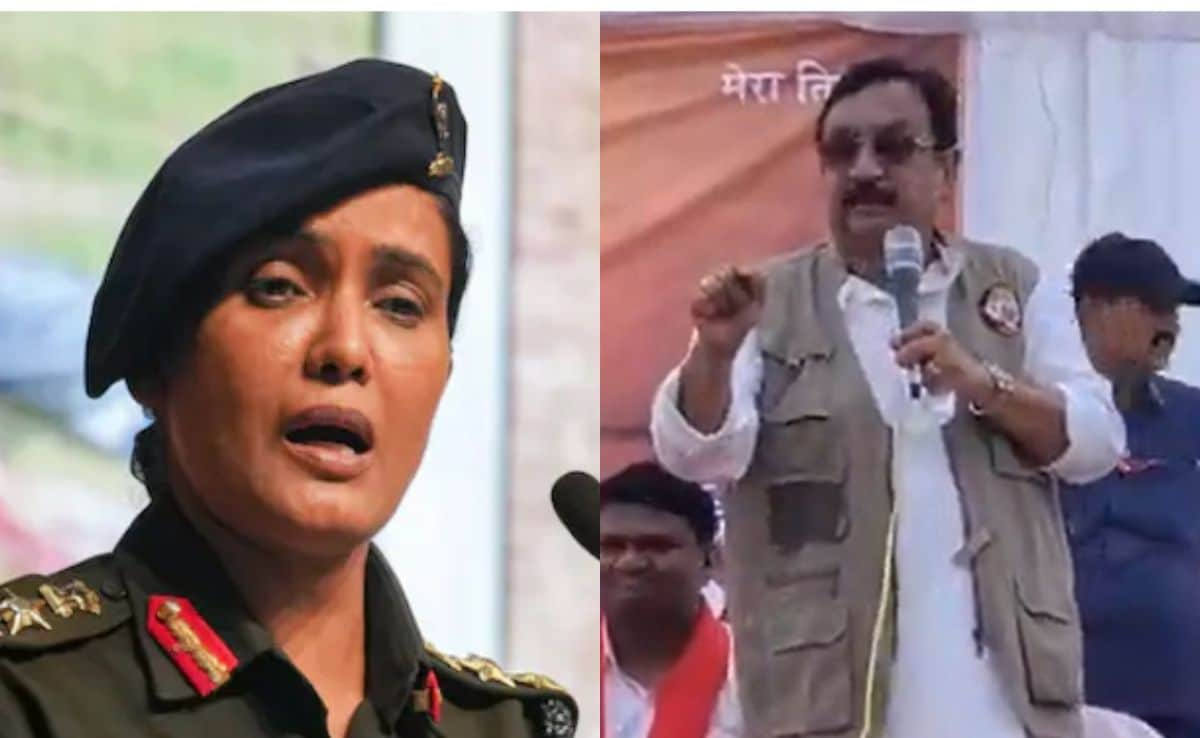Justice Surya Kant Condemns Flimsy Apology from Madhya Pradesh Minister in High-Profile Case
In a significant ruling that reverberates across India, the Supreme Court has decisively rejected the insincere apology of Madhya Pradesh minister Vijay Shah regarding his derogatory statements made towards a woman officer of the armed forces during the aftermath of Operation Sindoor. The court characterized his remarks as not only “crass” but also indicative of a broader issue concerning accountability and the type of language used by public officials. This case has drawn national attention due to its implications for gender equity and military respect within the political arena.
The Supreme Court’s decision was announced in New Delhi, where Justice Surya Kant led an impassioned rebuke of Shah’s apology, questioning its validity and sincerity. The incident has raised significant concern about the treatment of women in the armed forces and has spurred dialogue around the responsibilities of elected officials to communicate with care and respect. Shah’s apology was dismissed as merely a ploy to evade further consequences for his earlier comments, which were aimed at a woman officer involved in the mission.
The situation unfolded in the wake of Operation Sindoor, an important military initiative, which has been a focal point in discussions about gender equality within the defense services. The derogatory remarks made by Vijay Shah came as a shock to many, prompting outrage and calls for action against such behavior from public figures. The Supreme Court’s ruling serves as a reminder that accountability and genuine respect must be upheld in political discourse, particularly when addressing issues related to gender and public service.
The Impact of Derogatory Remarks and the Path Ahead
The Supreme Court’s rejection of Shah’s apology not only highlights the need for responsible communication from public officials but also reinforces the importance of respect for women in all spheres of life, including the military. Justice Surya Kant’s comments during the proceedings were pointed; he remarked, “What kind of apology have you tendered? There is some meaning of apology! Sometimes people use docile language only to wriggle out of proceeding! And sometimes they shed crocodile tears!” This candid assessment emphasizes the necessity for leaders to recognize the gravity of their words and the impact they can have on public perception and morale.
With this verdict, the Supreme Court aims to set a precedent for future conduct among lawmakers, signaling that dismissive or insincere apologies will not be tolerated in the face of serious misconduct. This case is particularly crucial as it unfolds within the context of ongoing discussions about gender equality in India. The backlash against Shah’s comments and the court’s subsequent ruling reflect a growing intolerance for misogyny in public discourse, and ensure that scrutiny will continue surrounding derogatory statements made by those in positions of power.
Furthermore, the rejection of the apology plays into the larger narrative of accountability within the Indian political system. For too long, public officials have been allowed to make harmful remarks without facing appropriate consequences. With the Supreme Court taking a clear stance, it sends a message to other politicians that they too could face repercussions for similar behavior, thus encouraging a shift towards a more respectful and accountable political culture.
The Broader Implications for Women in the Armed Forces
The remarks made by Shah were not just an affront to a single officer, but rather a reflection of the challenges women face within the armed forces and other male-dominated fields. Such comments perpetuate a culture of disrespect and can deter qualified women from pursuing careers in these sectors. As per the report by[The Hindu](https://www.thehindu.com/news/national/supreme-court-rejects-ministers-apology-over-communal-remarks/article35120509.ece), the backlash against Shah’s statements has reignited discussions about the necessity for stronger protections and affirmations of women’s rights within the military.
Many advocates are calling for stricter regulations against derogatory remarks and for more robust support systems for women in the armed forces. The Supreme Court’s ruling is seen as a pivotal step forward in this regard, promoting not only accountability among politicians but also ensuring the protection of women in all fields, including military service.
The government must now assess its approach to dealing with such issues and consider implementing measures that promote gender equality and discourage discrimination at all levels. This includes conducting training for public officials on the importance of respectful communication, particularly regarding sensitive topics such as gender and service in the armed forces.
As public sentiment continues to shift towards greater support for women in the military, it is imperative that both the judiciary and the legislature uphold principles of equality and respect in their actions and decisions. The broader implications of this ruling could pave the way for a more inclusive and respectful environment for future generations, safeguarding the rights of women across all sectors.
This landmark ruling from the Supreme Court not only holds Vijay Shah accountable but also signifies a collective movement towards dismantling misogynistic attitudes and behaviors in Indian society. It is a testament to the power of judicial oversight in correcting the course of political dialogue and fostering a more equitable environment for all citizens.
DISCLAIMER
We have taken every measure to ensure that the information in this article and on our social media platforms is accurate, verified, and obtained from reliable sources. For feedback or complaints, please contact us at info@hamslive.com.


